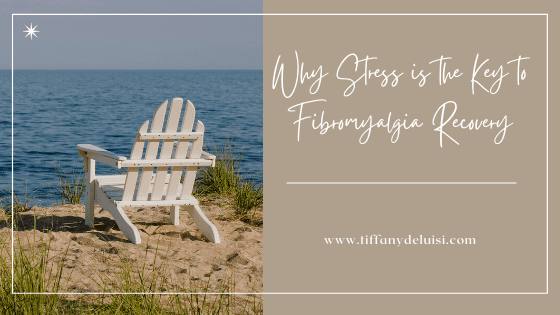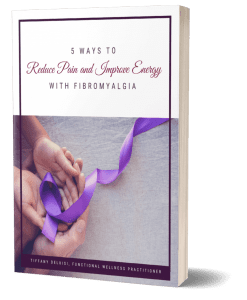Why Stress is the Key to Fibromyalgia Recovery

This goes without saying… living with a chronic illness is stressful. Fibromyalgia is no exception. You deal with a lot. You deserve more credit for dealing with the neverending fatigue, all sorts of pain, appointments with new providers, appointments with non-supportive providers, difficult conversations with loved ones, lost friendships and careers, and the list goes on.
Living with a chronic illness is stressful, but have you ever considered your stress level is making your symptoms worse?
What You Need To Know About Stress and Fibromyalgia
Stress is a common trigger for fibromyalgia. There’s been a lot of research about how the presence of stress worsens fibromyalgia symptoms. You probably don’t need a research article to tell you that. Still, sometimes that validation is necessary, especially when many people doubt the impact fibromyalgia makes on every aspect of your life.
There are different types of stress. Researchers have found that emotional stress (ex: conflict with a loved one, grieving a loss, feelings of loneliness) and interpersonal stress are particularly impactful and result in worsened pain and other symptoms.
It is suspected that individuals with fibromyalgia are more vulnerable to stress and its effects. Those with fibromyalgia report higher levels of psychological stress than healthy people and those with other chronic pain conditions, including osteoarthritis.
Those are the facts, but there’s a silver lining…
Stress-Reducing Strategies That Work
Fibromyalgia symptoms, sleep, and the ability to cope with stressful events can be improved by reducing stress. Learning to cope is essential for living (like really LIVING) with fibromyalgia.
But how can you reduce stress?
The most important thing to remember when talking about pain management strategies of any kind: consistency is key. It’s not fair to expect strategies to work when you only do them during flares. Pick one or two strategies to consistently try out for a few weeks before deciding if it’s one to include or exclude from your pain toolkit.
Here are some stress-reducing strategies:
- Relaxation and mindfulness techniques (examples include body scan, guided imagery, and progressive muscle relaxation)
- Deep/diaphragmatic breathing
- Exercise/movement
- Journal
- Laugh (you could watch a familiar comedy!)
- Listen to classical music
- Listen to a “pump-up” playlist
- Spend time with your pet
- Set boundaries and stick to them
- Ask for help or delegate
- Focus on one change at a time
Pick one or two strategies to consistently try out for a few weeks before deciding if it’s one to include or exclude from your pain toolkit.
How to Figure Out Your Triggers
When you’ve had fibromyalgia for a few years, it’s typical that they have a sense of what causes their flares. It can take time, energy, and a decent memory to figure out what your triggers are. Fibro fog can make it difficult to remember what led to a flare, so I’ve created the Weekly Strategies and Triggers Tracking Sheet for you! You can access the tracking sheet within my free e-book.







